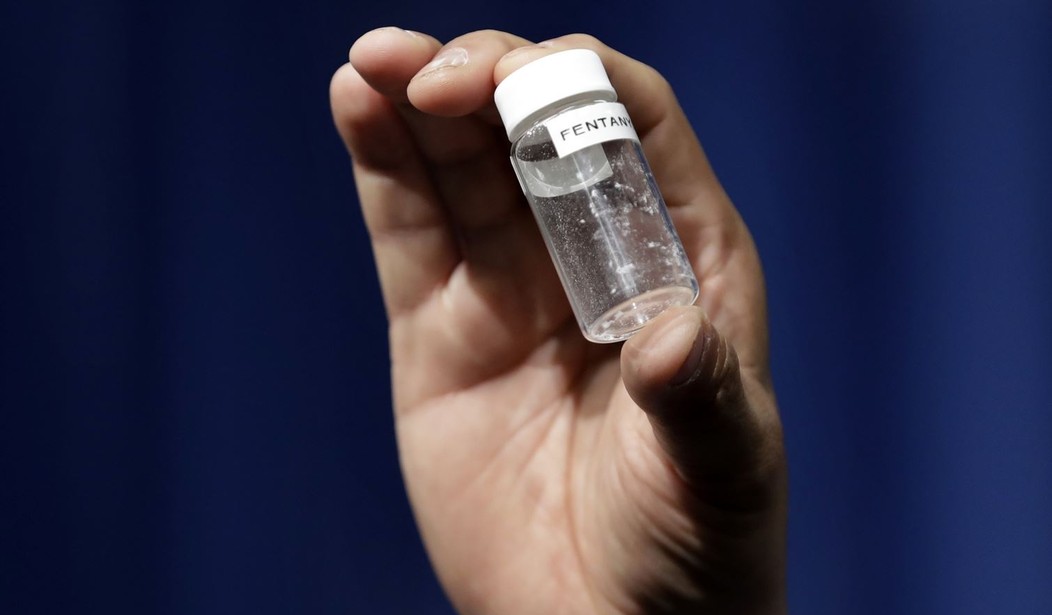The Commonwealth of Pennsylvania has been one of the most affected by the opioid crisis, ranking fourth among the states in overdose related deaths. Even as the number of legal prescription painkillers is reduced, opioid related deaths in the state continue to rise. The culprit? Synthetic opioids like fentanyl, that are flooding the state from Philadelphia to Pittsburgh, and everywhere in between.
The individual and family tragedies are hard enough to fathom, but that is only the beginning of the wide-reaching effects the opioid crisis has had on the state. While it is hard to overstate a crisis that kills fifteen people a day these tragedies at the local level are multiplied in communities throughout the state. The result is thousands of unfilled jobs, lost opportunity and a significant loss in GDP to the state’s overall economy. Congress should take note of the significant crisis facing Pennsylvania and take steps to ensure a similar fate does not befall other states across the nation.
The most pronounced cause of Pennsylvania’s opioid overdose crisis is the ease of which fentanyl is smuggled into the state especially through Philadelphia. In the city of brotherly love alone last year overdose deaths rose to over 1,200 with 88% of those deaths attributable to opioids. A major junction along the I-95 corridor, the city is used as a distribution center to spread fentanyl across the state and region. As the pipeline of legal prescription drugs dried up, addicts turned to heroine and fentanyl manufactured by Chinese laboratories and smuggled in by Mexican drug cartels to fill the demand.
Fentanyl is an extremely potent synthetic opioid. A small amount can go a long way in distribution and in killing those who overdose. An amount as little as four grains of salt is enough to cause death. Drug dealers, looking to fatten their margins, will often lace heroine with fentanyl in order to give their users a stronger high or mix it into counterfeit pills made to look like a legitimate prescription drug. As the Washington Post recently reported, “Part of the reason for the surge in deaths is many users do not know exactly what drugs they are buying and using, and in some cases, they are inadvertently ingesting lethal amounts of synthetic opioids, which include fentanyl.”
Recommended
Actions thus far have tended to focus on limitations and restrictions on the providers of legal prescriptions of pain killing drugs. This is laudable and is an important part of the problem. It has proven effective in reducing usage of legal opioids but does nothing to combat synthetic opioids such as fentanyl.
Our Governor and General Assembly are keenly aware of this crisis and have acted. In March Governor Wolf declared possession of fentanyl to be a highest-level offense, similar to that of LSD or heroine itself. In Washington, one of our state’s Congressmen, Brian Fitzpatrick, authored the fentanyl bill that President Trump recently signed into law. There is awareness. But a true bi-partisan effort led by Congress and the President, with stronger teeth and more resources, is needed. This is the true meaning of crisis, a word that is sometimes overused for policy problems that are more susceptible to less drastic solutions.
What needs to be done to help Pennsylvania and other states combating the opioid siege? The emphasis must shift from simply regulating prescription opioids, which the Federal Government has done quite adeptly, to investigation, enforcement and interdiction with all the means at our disposal of the synthetic opioids now fueling the surge of overdose deaths. This effort must be a true reflection of federalism at its best, with resolute leadership and resources from the national government, the states and their counties and communities. While tragic, we must learn from what has happened in Pennsylvania and work to prevent even greater losses across the country.

























Join the conversation as a VIP Member